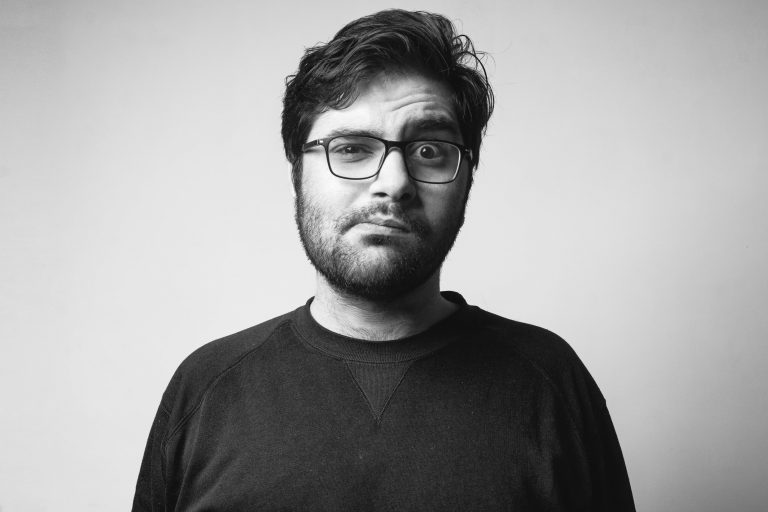Will I always be poor? (Not if you take these actions)
No one likes to be poor. It is difficult to live, always struggling to make ends meet. But is it possible that you will always be poor? The short answer is no.
In fact, there is a very good chance that you will eventually move out of poverty and achieve a higher level of wealth.
But the key person to building your wealth is you!
You need to set the goals, take the action, create and manage your money and execute your plan on a daily basis.
So don’t give up hope – poverty isn’t permanent!
This article will cover what it takes to move away from poverty and create enough money to make yourself financially secure.
Will I always be poor? not if you take the actions in this post.

Why am I poor and broke?
Many poor people and even middle-class people find themselves repeating these financial mistakes.
- You invest in stuff instead of yourself
- You are always one step behind your bank account
- Maybe you’ve made poor financial decisions
- You don’t know where your money goes
- You put today’s happiness before future financial needs
- You ignore big debts and end up paying them late.
- You spend too much on housing, entertainment or lifestyle.
- You’ve experienced unfortunate tragedy
- You’re trying to get rich quick
- You buy depreciating assets
- You don’t know anything about personal finance
You don’t need to feel bad about these things just take not that they aren’t helping you anymore, and taking action is the best way to change your current worldview and create more and other opportunities for yourself.
How to stop being poor starts with understanding your cycle of poverty.
10 ways to stop being poor: Breaking the cycle of poverty
- Stop comparing yourself to others
- Pay down your debt to get on the path to building wealth.
- Establish a plan for how to stop being poor by figuring out where you stand right now and want to be in the future.
- Put yourself in the company of others who make smart financial decisions
- Use your time to educate yourself better and advance your career
- Start a side hustle to increase your income
- Set goals to move forward financially
- Focus on what you can control
- Spend wisely and cut back where you can
- Invest and save as much as you are able to afford
Set goals and work towards them.
One of the most important steps to escaping poverty is to set goals. Without goals, it’s difficult to know what you’re working towards or what steps you need to take to get there
But setting goals is only the beginning – you also need to take action!
A goal without action is nothing more than a dream, and dreams don’t pay bills.
Here are some tips on setting and achieving your goals:
- Be specific when setting your goals. Vague goals like “I want to be rich” or “I want to make more money” are difficult to track and even more difficult to achieve. Set specific goals that you can measure, such as”I want to earn an annual income of $50,000″ or “I want to save $500 per month.”
- Make sure your goals are realistic. If your goal is to earn a million dollars in the next year, it’s probably not going to happen. But if your goal is to double your income in the next five years, that’s much more achievable
- Write down your goals and refer to them often. A written goal is more likely to be achieved than one that’s only stored in your head
- Set a deadline for each goal. Having a timeline will help you stay on track and motivated
- Break down each goal into smaller steps. For example, if your goal is to save $500per month, break it down into weekly or bi-weekly savings goals. This will make your goal seem more achievable
- Share your goals with someone who will hold you accountable. Telling a friend, family member, or even a financial advisor about your goals will help you stay on track
Take action to achieve your goals
Now that you’ve set some specific, realistic and achievable goals, it’s time to take action! Remember, a goal without action is just a dream – and dreams don’t pay the bills
Here are some tips on taking action towards your goals:
- Start small. If you’re trying to save money, start with $50 per week. Once you’ve achieved that goal, you can increase it to $100 per week. Gradually increasing your savings will help you reach your overall goal without feeling overwhelmed
- Set up a budget and stick to it. A budget is a critical tool for achieving any financial goal. If you’re not sure how to create a budget, there are many resources available online, or you can speak to a financial advisor
- Automate your finances. Setting up automatic transfers into savings or investment accounts will help you reach your goals faster
- Invest in yourself. One of the best ways to escape poverty is to invest in your own education and career development. Consider taking courses or learning new skills that can help you earn more money
- Make a plan and stick to it. Having a written plan will help you stay on track and achieve your goals. Make sure to review and update your plan regularly
- Don’t give up. It’s normal to have setbacks when working towards any goal. Just remember to dust yourself off and keep going!
Many habits and behaviours can keep you trapped in poverty. But the good news is that if you’re willing to put in the work, you can escape poverty and achieve financial security.
Start by setting some specific, realistic and achievable goals.
Then take action towards those goals, sticking to your budget and plan.
And finally, don’t give up – even if you have setbacks. With dedication and perseverance, you can overcome anything!
Get an education and learn new skills.
One of the best ways to escape poverty is to invest in your own education and career development.
Consider taking courses or learning new skills that can help you earn more money.
Education and training are essential tools for improving your financial security.
With the right skills, you can increase your earning potential and achieve financial stability for the long term.
So don’t stop learning – it could be the key to unlocking a brighter future for you and your family!
How do I get started?
There are many ways to start learning new skills and increasing your education. Here are a few ideas:
- Take courses at a local college or university
- Watch Youtube videos on your chosen subject
- Listen to podcasts on the sector or job you would like to move to
- Attend free training sessions or workshops offered by community organizations
- Complete online courses or tutorials
- Read books, articles or other resources on topics that interest you – free from the library!
No matter how you choose to learn, the important thing is to keep developing your skills and knowledge.
Any additional training you undertake will help with your job security and create a greater safety net of skills and experience for when you need to look for new jobs.
With dedication and hard work, you can achieve anything!
Stop chasing get-rich-quick schemes and start building real wealth.
It can be tempting to get rich quickly, especially if you’re struggling financially.
But the reality is that these schemes rarely work, and often end up leaving most people even worse off than before.
So why do so many people fall for them?
There are a few reasons:
- First, many of these schemes are very convincing and promise quick and easy money.
- They also prey on people’s hopes and dreams, convincing them that they can finally achieve financial security if they just invest in this one scheme.
- And finally, many people are desperate for a solution to their financial problems, so they’re willing to take risks to make money.
But the truth is that there is no such thing as a “get rich quick” scheme. Building real wealth takes time, effort and dedication.
So if you’re looking for a quick fix, you’re likely to be disappointed.
The best way to achieve financial security is to develop healthy financial habits and behaviours and invest in yourself.
So avoid chasing get rich quick schemes, and start building real wealth today!
Make a budget and stick to it.
When it comes to managing your money, it’s essential to have a budget. A budget will help you track your spending and make sure you’re not overspending, i.e. spending money you don’t have.
Knowing what’s going on in your savings accounts is the key to understanding your financial situation.
It can also help you save money for important goals, like saving for a house or retirement.
Creating a budget may seem like a difficult task, but it’s actually very simple. Here’s how to get started
- Figure out what your monthly income is. This is the amount of money you earn each month
- List all of your monthly expenses. This includes rent/mortgage, groceries/food, bills, transportation costs, health insurance, kids, school fees, and paying taxes.
- Subtract your monthly expenses from your monthly income. The result is how much money you have left each month to save or spend on discretionary items
- If you have a negative number, that means you’re spending more than you’re earning each month. You’ll need to find ways to reduce your expenses or increase your income
If you have a positive number, congratulations! You have some extra money each month that you can save or spend as you please!
It’s important to review your budget regularly and make changes as needed. For example, if you get a raise at work, your budget will need to be adjusted accordingly
But as long as you stick to it, a budget is a great way to keep track of your finances and make sure you’re not overspending.
Start an emergency fund.
An emergency fund is a savings account that you use for unexpected expenses like medical bills, car repairs or job loss
It’s important to have an emergency fund because it can help you avoid going into debt if something unexpected happens
Ideally, your emergency fund should have enough money to cover 3-6 months of living expenses or more, given your circumstances and how well you like to sleep at night.
So how do you start an emergency fund?
First, figure out how much money you need to save. This will depend on your monthly expenses
Then, start setting aside money each month to reach your goal. You can do this by setting up a separate savings account or automatically transferring money from your checking account into your savings account
Once you have saved up enough money, be sure to keep it in a safe place where you won’t be tempted to spend it.
And finally, remember to top up your emergency fund as needed. If you have a major unexpected expense, make sure to replenish your savings to prepare for the next one!
Save for retirement.
It’s never too early to start saving for retirement!
No one wants to collect food stamps or live on the poverty line in their old age.
The sooner you start saving, the more time your money has to grow
There are many retirement savings options available, but the most common is a workplace or private pension
Workplace pensions are retirement savings accounts offered by employers. It allows you to set aside money from your paycheck before taxes are taken out
The money in your pension grows tax-deferred, which means you won’t have to pay taxes on it until you withdraw the money in retirement
Most employer-sponsored pension plans also offer matching contributions, which is basically free money!
You do want free money, right?
Live below your means.
Living below your means is important because you’re less likely to overspend and go into debt.
When you live within your means, even if you’re living on minimum wage, you’re more likely to have money left over each month to save or invest
This can help you reach important financial goals, like saving for an emergency fund like a thousand dollars, a house deposit or retirement
It’s also important to remember that just because you can “afford” something doesn’t mean you should buy it. Being able to make a car payment doesn’t make it a good idea, even if the interest rates seem low (now!).
Sometimes it’s better to wait until you have enough money to afford the item outright instead of putting yourself in debt.
Being frugal may not be glamorous, but it’s a great way to stay out of debt and secure your financial future!
Invest in yourself and your future.
FAQ Will I always be poor?
What are signs of being poor?
Some signs of financial difficulty or financial stress can include:
-Struggling to make ends meet or pay bills on time
-Living paycheck to paycheck
-Having high levels of debt
-Lack of emergency savings or savings for future expenses
-Struggling to afford basic necessities like food, housing, and healthcare
-Reliance on high-interest debt, like credit cards, to make ends meet
-No access to financial resources, such as a bank account or credit card.
However, it’s important to note that not everyone who experiences these financial difficulties is considered “poor,” and not everyone who is considered “poor” experiences these difficulties.
How can we stop being so poor?
There is no one-size-fits-all answer to ending poverty, but some steps that can help include:
-Education and skills training: Improving your education and acquiring new skills can increase your earning potential and lead to better job opportunities.
-Budgeting and saving: Creating a budget and saving regularly can help you make the most of your income and avoid falling into debt.
-Investing in assets: Owning assets like stocks, bonds, or real estate can help you build wealth over time.
-Building an emergency fund: Having an emergency fund can help you weather unexpected expenses and avoid relying on high-interest debt.
-Seeking financial advice: Talking to a financial planner or counselor can help you identify and address any financial roadblocks.
-Reducing debt: Paying off high-interest debt like credit card balances can free up more money for savings and investment.
-Seeking public benefits: Taking advantage of public benefits like food stamps or housing assistance can help reduce living expenses.
-Starting a business: Entrepreneurship can be a way to increase income and create long-term wealth.
Remember, it takes time and effort to overcome poverty, but with the right strategies and support, it is possible to achieve financial stability and independence.
Why do people remain poor?
People remain poor for a variety of reasons, including:
-Lack of education or job training: Without the right skills and education, it can be difficult to secure a high-paying job.
-Income inequality: The gap between the rich and poor continues to widen, making it more difficult for those at the bottom to get ahead.
-Systemic barriers: Some groups may face discrimination and barriers that limit their ability to get ahead, such as racism and sexism.
-Unstable or low-paying jobs: Many people are stuck in low-paying, insecure jobs that don’t provide a pathway to financial stability.
-Debt: High levels of debt can prevent people from saving and investing in their future.
-Unaffordable housing: High housing costs can consume a significant portion of a person’s income, leaving little left over for other expenses.
-Lack of financial literacy: Many people lack the knowledge and skills to make informed decisions about their finances.
To stop being poor, it is important to focus on improving one’s education and job skills, addressing systemic barriers, reducing debt, and developing good financial habits and planning. Additionally, addressing income inequality through government policies and advocacy can help create a more level playing field for everyone.
Is being poor a choice?
Being poor is not a choice for many people. Many factors contribute to poverty, including lack of access to education, job opportunities, and resources, systemic inequalities, and unexpected life events such as medical emergencies or job loss. It is important to recognize that poverty is a complex issue and addressing it requires a multi-faceted approach that addresses the root causes.
Final thoughts Will I always be poor?
There are many reasons why someone might find themselves in a cycle of poverty, but luckily, steps can be taken to break the cycle.
Some of the key steps include setting your self-clear goals, taking action, managing your money better, living below your means, investing in yourself and your future, looking for the right mentors, and improving your skills and experience.
All of these actions will greatly improve your health, wealth and happiness, and financial well-being.
It’s important to remember that being poor doesn’t mean you’re a bad person and that breaking the cycle is possible with effort and determination.
If you want help creating your wealth plan, find out more here.
Want help with your financial planning?
Take control of your financial future with Financially Happy!
Our financial planning coaching services will empower you to make informed decisions, set and achieve financial goals, and ultimately lead a financially happy life.
Don’t wait; schedule your consultation today and start your journey to financial freedom!







